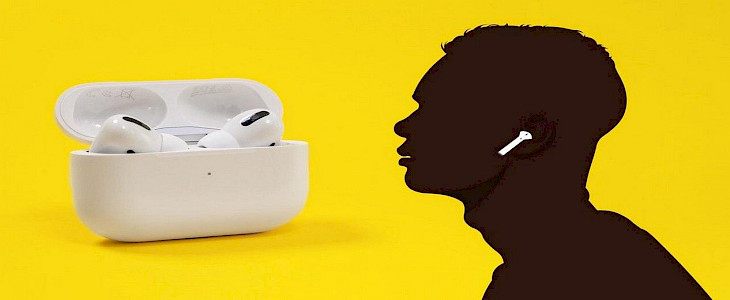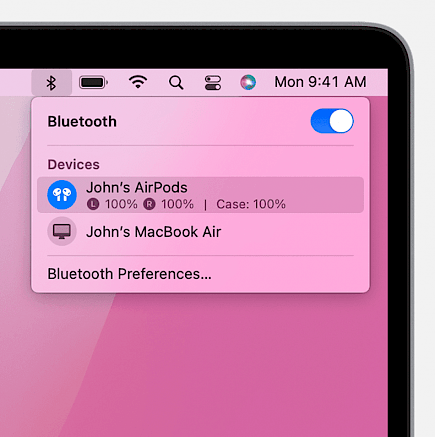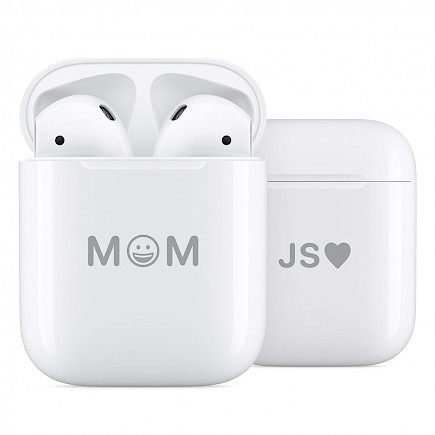
Good news for all the AirPod lovers.
Remember the time you used to worry about your AirPods getting stolen?
Well, don’t worry anymore as with the arrival of the first quarter of 2022 Apple is planning to bring out a special user-identification feature that will make owning a pair of AirPods as carefree as owning an iPhone.
Here’s everything you should know about this new and upcoming innovation.
The News:
Apple AirPods are among the most sought-after tech gadgets in any product category. They only get better, amazingly better, in fact, with every new model. We recently purchased one of my family members a pair of Apple AirPods Pro, and the experience is good so far!
After a few hours with the AirPods Max and the ease of the headphones that fit over your ears, the stunning quality of the sound and noise cancellation began to set in. It was time to buy a replacement for the AirPods Pro. We originally bought it as a present with the more expensive AirPods Max.
When it comes to AirPods, they're already loaded with excellent features, including the ability to tell the moment you've removed the earbuds. After you've put them back, for instance, the music you're listening to automatically stops and returns once you are in their position.
They can be placed over your ears in the case of the Max. But according to a recently released Apple patent, the iPhone maker could be about to add an additional feature that will be beneficial to the device. In particular, it could be a biometric type of authentication for users.
Apple has filed a patent application with the United States Patent and Trademark Office with the title "User identification using headphones." This was discovered through Patently Apple.
The patent describes the ways AirPods are authenticated by making use of other "nearby devices and ultrasonic signals, as well as voice recognition, and even the gait of the wearer."
Were AirPods really vulnerable and is this feature practical?
The primary idea behind the patent is to deal with the problem that AirPods can't identify if the person who is wearing the device is the legitimate user of the gadget.

As Apple states, this could be a problem because anyone can make use of the AirPods when they're attached to devices that are owned by someone else. This puts the device at risk of divulging personal data, including notification messages from Siri.
The system is able to bypass the requirement to use Face ID, Touch ID, or any other type of biometric authentication that requires another device in place of using a "similarity score" to confirm the identity of a user. The similarity score could be determined by multiple variables, like proximity to other nearby devices belonging to the owner of the device.
But, Apple says that biometrics are still a viable option to enhance the reliability of the score. To authenticate a person using biometric AirPods in their own right, Apple proposes playing and hearing ultrasonic sounds within the headphones:
For example, different characteristics of the ear canal of the user provide an echo from the signal that is specific to the individual. In addition, the surface of the ear canal could create an ultrasonic reflection on the surface, resulting in an echo that has a particular signature that is associated with the person who uses it.
For instance, a person with a more giant ear canal could cause an echo to have an extended reverberation period as compared to a person with an ear canal that is smaller.
Apple states that AirPods can also make use of information about a person's movement and voice through the AirPods' accelerometers, gyroscopes, and microphones to determine whether the user is the owner of the device.
Together, these data points will give an overall similarity score, which could verify users if it exceeds the minimum threshold.
Apple frequently introduces new features to its existing AirPods devices through firmware updates, like the ability to support The Find My Network, as well as Conversation Boost and Spatial Audio.
This is why it seems likely that AirPods authentication for users could be added in the next update. However, patent filings aren't representative of Apple's current plans. However, they do highlight some of the company's particular areas of study.
Some other recent Apple patent applications comprised concepts for all-glass iPhones along with Apple Watches, a removable MacBook key that functions as a mouse, and a hydration sensor to be used with the Apple Watch.
Are there any potential risks?
Are there security risks with regard to AirPods?
There is a tiny chance that there's always the possibility that someone swaps any of the AirPods for yours. In this case, they'll be able to hear the telephone calls as well as conversations or even use Siri using your iPhone.

It's an unlikely scenario, yet it is possible in such a way that Apple is considering introducing an authentication system for users of the future AirPods. According to a patent found by Patently Apple, that suggests Apple might introduce a type of authentication system in order to verify that the person who wears the AirPods is the one who owns them.
As per the patent, For instance, the various features of the user's ear create an echo from the sound that is specific to each person who is using it.
The surface of the ear canal could result in the sound's reflection off of the surface, resulting in an echo that bears a particular characteristic that is unique to the person who uses it.
For instance, a person with a more giant ear canal might result in an echo with an extended reverberation period in comparison to someone with smaller ear canals. "
It's a complex system, but it could be a valuable method to stop thieves from taking AirPods or to deter people who come across AirPods abandoned to claim them for their personal use.
The question is whether or not this is a method Apple will adopt in the future for AirPods has yet to be determined.





